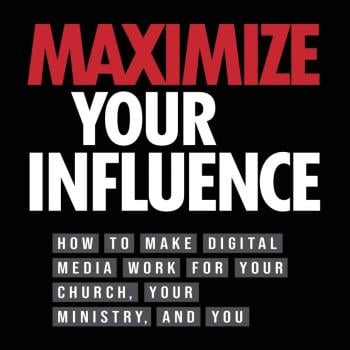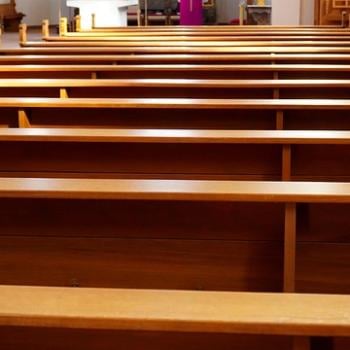Easter is just around the corner, and this year my family has taken a different route through our beautiful midwestern spring toward Passion Week. Several months ago my son developed an intense interest, in the way that little boys do, in all things ancient Egypt. Trips to the library, visits to the museum, National Geographic documentaries on Netflix—he inhaled it all and wanted more.
One night after dinner he announced that instead of our usual family scripture study in the Book of Mormon, he wanted to read the story of Moses and Pharaoh in Egypt from the Old Testament. I was pleased to comply with his request, and as I pulled our lovely illustrated children's Bible off the shelf he announced further that he wanted to read it from the "real Bible," the King James Version, and that he didn't want to skip any of it. (He reads well enough now to notice when I silently excise the boring or violent parts, as I deem them, from our readings.) Down came the KJV, I opened to Exodus 1, and we were off.
As luck would have it, our readerly journey from the banks of the Nile to the slopes of Horeb and back to the courts of Pharaoh has proceeded so as to bring us to the Israelites' festival of the flatbread precisely in time for Passover this week, and we should reach the climactic liberation of Israel from affliction and slavery by Easter morning. Typically I read to my children from the New Testament accounts on each day of Passion Week, and this year I am doing that as well. But it's been an illuminating experience to approach the empty tomb by way of the Old Testament; my understanding of the Exodus narrative has deepened, as has my Christian experience of Easter, as I've encountered the two together.
I hasten to note, especially in an interreligious space like Patheos, that my Easter encounter with the Exodus narrative and its embedded festivals of the flatbread and the paschal lamb is necessarily a partial one: to read the Exodus text as context for something else—Christ's death and resurrection—is to appropriate the revered foundational myth of another tribe, to borrow and in some senses to steal it, like the Israelites with the Egyptian treasure. I am not reading the text for its own sake; I am not approaching it as an ancient Israelite would, nor even as Christ's own disciples would, at first. I am using the Exodus to shed light on another text, and this kind of use is always a misuse. Nevertheless, appropriation and borrowing and use and misuse are, in large measure, the very processes by which imagination works, the religious imagination most of all.
It is certainly the means by which Paul interpreted the meaning of Christ's death and resurrection for his young Christian flock when he asked the Corinthians:
Don't you know that a little yeast leavens the whole batch of dough? Get rid of the old yeast, so that you may be a new unleavened batch—as you really are. For Christ, our Passover lamb, has been sacrificed. Therefore let us keep the Festival, not with the old bread leavened with malice and wickedness, but with the unleavened bread of sincerity and truth (1 Cor. 5:6-8).
It is natural that Paul would turn to the Exodus narrative, and to the festivals of the paschal lamb and the flatbread, to explain the meaning of the Christ as the great eschatological Passover offering. The Exodus was the only archetype of salvation that New Testament writers knew. The Israelites' enslavement to their Egyptian masters rather naturally suggests human enslavement to sin and death, and their ultimate liberation through the wondrous and terrible intervention of God readily recalls Christ's triumphal liberation from death and hell. Redemption through the spilt blood of a perfect lamb was an idea that lived and signified at the deepest levels for Jewish Christians—and with good reason, for the Exodus account is exceptionally rich scripture.
Here, then, are seven gifts that Exodus offers to a Christian observance of Easter.
- The Exodus narrative is structured around parallels to the creation narrative of Genesis. The story begins with the Israelites' remarkable fecundity: they "were fruitful and swarmed and multiplied and grew very vast, and the land was filled with them," just as Adam and Eve were commanded to be fruitful and multiply and replenish the earth. The plagues, too, recall the creation, but as a dark anti-type: frogs and flies and locusts multiply and swarm, but their fecundity destroys God's work rather than fulfilling it. Exodus, then, sketches in the connection between what Christians see as the first two pillars of cosmic history: the creation and the atonement.
- Exodus recounts an archetypal journey from enslavement to liberation to epiphany, and its epic sweep serves it well as the foundational narrative of a nation. The intimacy of the New Testament resurrection narratives, by contrast, highlights the personal and domestic implications of the event, and perhaps that is as it should be. But Exodus reminds us that Christ crucified and risen is also the foundational narrative of a new nation, a nation that would not be defined by ethnic identification but by adoption into the mystical body of Christ.
- Despite the world historical stage which Exodus sets itself, and despite the lengths to which the narrative goes to demonstrate the Lord's marvelous power over the vastest elements of creation, the God of Exodus notices the obscure and the insignificant. "And God saw the Israelites, and God knew"—knew not only of the afflictions of a minor Semitic tribe enslaved to an imperial power, but also the sufferings of the Egyptian "slave girl who is behind the millstones." The motley throng of liberated Israelites going out from Egypt, every man and woman and child and beast of whom the Lord had wrested from Pharaoh, includes each of us.
- The Exodus tests emphasize the educational and commemorative function of the story and of the Passover ritual inscribed within it. The establishment of the ritual observance—the paschal offering, the festival of flatbread, the dedication of the firstborn—is not merely a postscript to the narrative, but its very reason for existence. "And so should your sons ask you, 'What is this service to you?', you shall say, 'A Passover sacrifice to the Lord, who passed over the houses of the Israelites in Egypt when he scourged Egypt and our households He rescued.'" Exodus has much to offer Christians, whose observances of Easter can be trivial, impoverished, and inchoate.
- The deity that inhabits the Exodus narrative is the fierce, uncanny YHWH the patriarchs encountered in Genesis. We meet this compelling archaic Lord again in the bridegroom of blood episode: the Lord seeks to kill Moses by night as he makes his return journey from Midian to Egypt, and his life is only saved when Zipporah circumcises her son and touched the bloody foreskin to her husband's feet. "Yes, a bridegroom of blood you are to me." Much of this episode remains enigmatic, but it reminds us that life, as much as death, can be dark and dangerous; blood is the stuff of violent death as much as it is the sign of life; and a covenant relationship with God calls us to mystery and struggle. If our Easter observance is exclusively pastel-colored, we're missing much of the point.
- As a confessed sign-seeker, I was thrilled by Moses' astounding feats of divine power, building from his transformation of staff into serpent toward the great climactic parting of the sea. But I found little clarity on the relationship between signs of divine power and faith. Instead, the Exodus narrative ultimately leads us away from the signs of power God provides for us and instead toward ourselves as signs of God's power. The blood on the lintel, the flatbread at the table, the dedication of the firstborn—these are not signs of God's power over the cosmos, they are signs of our own covenant affiliation with God. "And it shall be a sign on your hand and circlets between your eyes, that through strength of hand the Lord brought us out of Egypt." Our own hands, our own eyes: these are the signs.
- Finally, the Exodus narrative teaches us that the liberation God promises is not an exit into libertarian license but rather a passage into another kind of service. The story traces a move from coerced slavery to priestly service of the deity: a significant portion of the Exodus text, after all, is devoted to elaborating the new statutes and observances that will be required of the Israelites by their new master. Christ liberates us from the Egyptian yokes of death and hell, but he invites us to enter his service as disciples, to take upon us his yoke. That is the freedom of Easter.
4/19/2011 4:00:00 AM





